Continuing Education Course
Thursday, May 1, 2025 - Thursday, June 26, 2025
6:30 pm to 8:00 pm
Online
via Zoom (link will be sent via email the day before the event)
Bad Fathers, Wicked Stepmothers, Cannibalistic Witches, and Amorous Princes: A Psychoanalytic Interpretation of Fairy Tales
Instructor: Robert White, MD
Professional Registration
$225.00
Student/Trainee Registration
$50.00
CME/CE Certificate fee
$20.00
This course is part of the Reiser Psychoanalytic Core Curriculum, dedicated to Lynn and Morton F. Reiser, MD in appreciation of their support of Psychoanalytic Education.
The L Series: Children's Literature and Child Psychoanalysis
Folk tales have been present ever since humankind started to speak and are present in all cultures. What we know as fairy tales are literary versions of a series of folk tales, often transmitted through a series of languages and cultures. What we know as the European fairy tale had its roots in Indian and Arabian cultures. The earliest fairy tales appeared first in Italy in the sixteenth and early seventeenth centuries, then in France in the seventeenth century, and finally in Germany in the eighteenth and early nineteenth centuries. The early psychoanalysts, including Freud, thought of fairy tales as similar to dreams, offering another royal road to the unconscious. Fairy tales have never lost their popularity and regularly appear in rewritten form, operas, movies, songs, and literature of all sorts. This course will take up the question of what a fairy tale is, a brief look at the history of fairy tales, and then consider some of the best-known tales of Perrault and the Grimms. The title of the course is also the title of a forthcoming book by Dr. White, due to be published in the Spring of 2025. We will read chapters from the book.
Learning Objectives
- Develop an understanding of the academic study of fairy tales, including a history of folk tales, their variants within and among cultures, individual fairy tale authors, and the culture, especially France and Germany, that influenced fairy tale structure.
- Define folk tales, fairy tales, and fantasy as distinct literary genres.
- Discuss individual tales as a multi-determined psychoanalytic psychology that expresses humankind’s deepest fears and motivations.
- Use modern rewrites of fairy tales as a window into the motivation of the principal characters.
- Understand that many fairy tales have a quest structure involving the disruption of ordinary life. The hero is sent off to a magical space of transformation and returns with greater maturity. This is an adolescent journey into adulthood.

